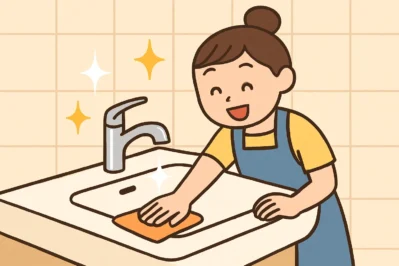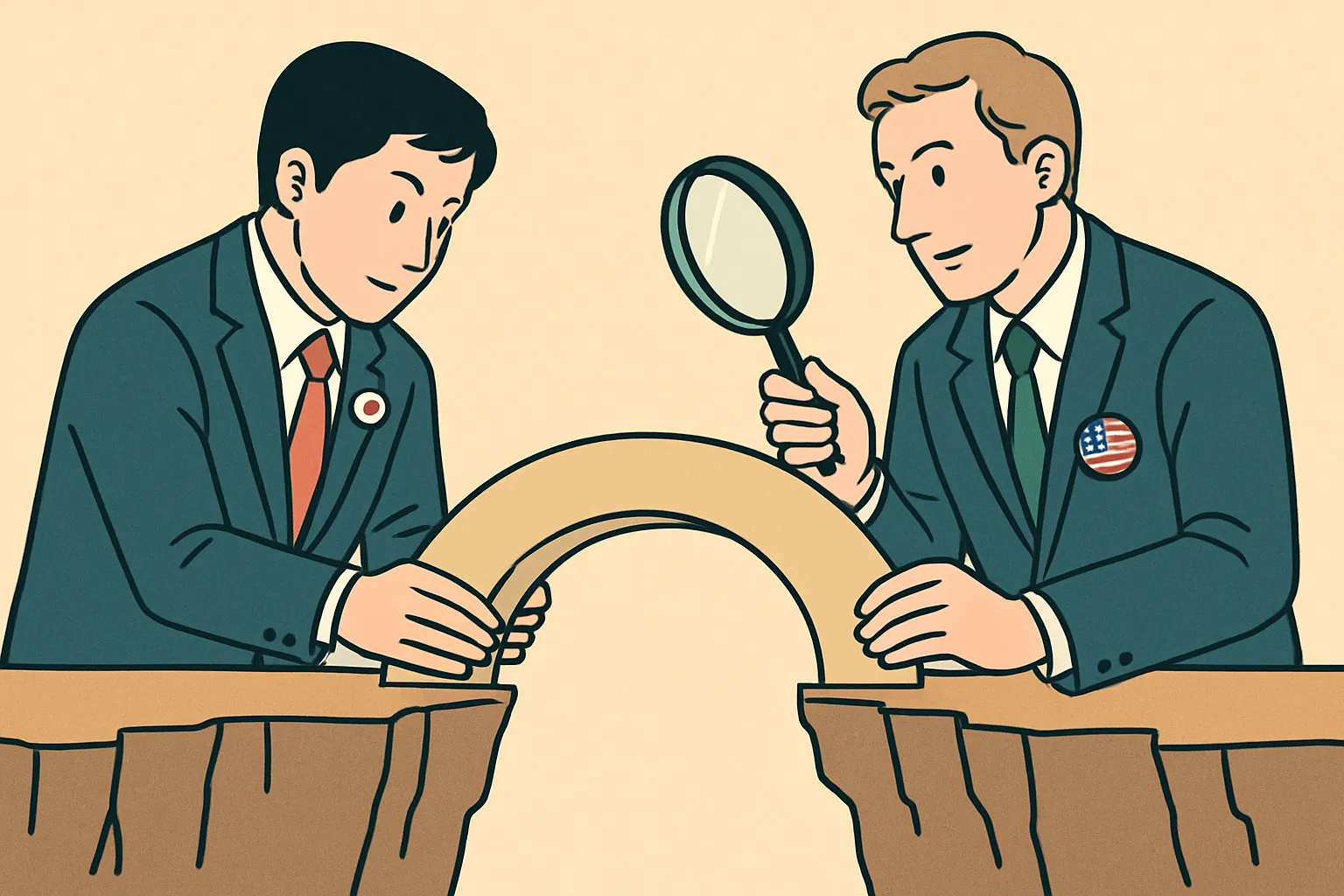Sparkling Clean! Korean Phrases for Bathroom Chores
Hello! This is [Maeil Hangul], here to upgrade your Korean skills!
Do you ever feel super satisfied after making something messy become sparkling clean? Today, we’re going to learn the Korean words and phrases you need to talk about one of the most satisfying chores: cleaning the bathroom! These days in Korea, watching “cleaning vlogs” (청소 브이로그) is super popular on YouTube and Instagram. It’s so relaxing to see someone transform a space! Now, you can learn how to talk about it, too. Let’s get started!
Core Expressions You Need to Know
Here are 3 essential expressions for your bathroom cleaning mission!
- 1. 화장실 청소 (hwajangsil cheongso)
- Pronunciation [Romanization]: Hwa-jang-sil cheong-so
- English Meaning: Bathroom cleaning
- Detailed Explanation: This is the most direct and common way to say “bathroom cleaning.” It’s a noun phrase made of
화장실(hwajangsil: bathroom) and청소(cheongso: cleaning). To turn it into a verb, you add the verb하다(hada: to do). So, “to clean the bathroom” is 화장실 청소하다 (hwajangsil cheongsohada).
- 2. 닦다 (dakda)
- Pronunciation [Romanization]: Dak-da
- English Meaning: To wipe, to scrub, to polish
- Detailed Explanation: This is a super useful verb for any kind of cleaning! You can use it for wiping mirrors, scrubbing the floor, or polishing a faucet. Remember, since it’s a verb, it will change its form depending on the sentence. For example: “I wipe the mirror” is
거울을 닦아요(geoul-eul dak-a-yo).
- 3. 반짝반짝 (banjjak-banjjak)
- Pronunciation [Romanization]: Ban-jjak-ban-jjak
- English Meaning: Sparkle, sparkle / Twinkle, twinkle
- Detailed Explanation: This is a fun onomatopoeic word (의태어) that describes something shiny or sparkling. You use it as an adverb to describe how something is shining. It’s a word you’d use to describe the bathroom after it’s perfectly clean. It’s a very common and cute-sounding word that Koreans use often!
Example Dialogue
Let’s see how these words are used in a real conversation between two roommates, A and B.
A: 와, 화장실이 좀 더럽네요. 우리 화장실 청소할까요?
(Wa, hwajangsil-i jom deoreomneyo. Uri hwajangsil cheongso-halkkayo?)
(Wow, the bathroom is a bit dirty. Shall we clean the bathroom?)
B: 네, 좋아요! 제가 세면대를 닦을게요.
(Ne, joayo! Jega semyeondae-reul dak-eulgeyo.)
(Yes, good idea! I’ll wipe/scrub the sink.)
A: 와! 이제 화장실이 정말 깨끗해요. 반짝반짝 빛나요!
(Wa! Ije hwajangsil-i jeongmal kkaekkeut-haeyo. Banjjak-banjjak bitnayo!)
(Wow! The bathroom is so clean now. It’s sparkling!)
B: 맞아요! 기분이 정말 좋아요.
(Majayo! Gibun-i jeongmal joayo.)
(I agree! It feels so good.)
Culture Tip & Trend Deep Dive
In Korea, the concept of “살림” (sal-lim), which means housekeeping or running a household, has become a very trendy topic, especially among younger generations on social media.
Many popular YouTubers are “살림” creators who share tips for cleaning, organizing, and cooking in aesthetic vlogs. When they show the “after” result of their cleaning, they almost always use the word 반짝반짝 (banjjak-banjjak) to emphasize how clean and shiny everything is. If you want to sound like a trendy Korean, use 반짝반짝 after you finish cleaning something. It perfectly captures that satisfying feeling of a job well done!
Let’s Practice!
Time to check what you’ve learned. You can do it!
- Fill in the blank:
- The mirror is dirty. I need to ___________ it.
- 거울이 더러워요. 거울을 ___________ 해요.
- (Hint: Use the verb for ‘to wipe’)
- Make a sentence:
- How would you say “The clean floor is sparkling”? Use
깨끗한 바닥(kkaekkeuthan badak: clean floor) and반짝반짝.
- How would you say “The clean floor is sparkling”? Use
Great job today! Learning how to talk about daily activities is a huge step in becoming fluent.
Now it’s your turn! Leave a comment below using one of the expressions we learned today. 화이팅 (Hwaiting – You can do it)!






